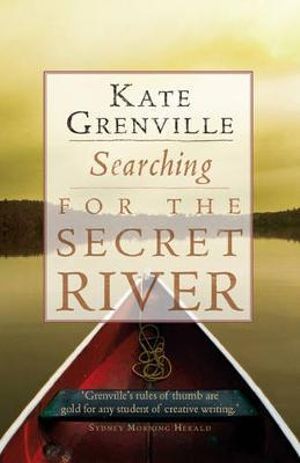Searching for the Secret River by Kate Grenville

(Ages: Senior) Kate Grenville writes her own story, that of teasing out the ideas, stories and history that led her to write the award winning, The Secret River. A family trip in her early teens, to Wiseman's Ferry, where her convict ancestor built a ferry across the river, begins the story of her search. There Kate and her mother looked at the hotel; the old house, and marveled at the story of her ancestor killing his wife, who fell down the staircase. And years later, walking across the Sydney Harbour Bridge in the Reconciliation Walk in 2000, she was stopped by a look which passed between her and an Aboriginal woman. This made her question the rightness of what she was doing, and she recalled her ancestor, and his dealings with the Aboriginal people who lived on the land he took.
During Australia's Centenary of Federation celebrations, Grenville went to London with a group of writers to present workshops, and at the same time, research her ancestor. There she met Melissa Lucashenko, who in asking the simple question, where are you from, knotted all these disparate ideas together and made her question further.
What a wealth of information is here for the Australian history student. Reading gives a blow by blow account of research techniques, its pitfalls and surprises, its foot work and slog, the grit needed to keep looking. 'One long intelligence test' is how she describes some of her research in London, particularly at the record offices in Kew, an amazing trip through a myriad of documents, government papers, micro fiche readers, computers and volunteers. But her discovery of a letter written by a man about to be hanged, changes her mind about her researching her family, and instead she decides to write a story, giving us the fabric of lives led at the time of her ancestor.
So we have an entertaining look at the research needed to write a book, and along the way a treatise on why she wrote the book, The Secret River, which collected some criticism when it first appeared. It is her research presented as an historical novel, about a man, William Thornhill, an illiterate ex convict who took land near the Hawkesbury River, and treated the local Aboriginal people with scant regard. In treating her ancestor's history in such a way she has made the story accessible to all, and so is setting a standard for historical fiction of the future to be based on fact, giving a true impression of what has gone before. The Secret River is a wonderful read, and listening to this account, adds another layer of interest and awareness.
Fran Knight